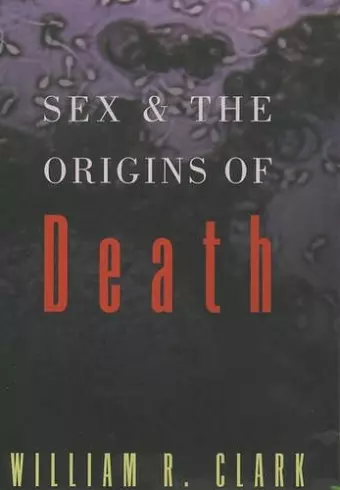Sex and the Origins of Death
Format:Paperback
Publisher:Oxford University Press Inc
Published:25th Jun '98
Currently unavailable, and unfortunately no date known when it will be back

Death, for bacteria, is not inevitable. Protect a bacterium from predators, and provide it with adequate food and space to grow, and it would continue living--and reproducing asexually--forever. But a paramecium (a slightly more advanced single-cell organism), under the same ideal conditions, would stop dividing after about 200 generations--and die. Death, for paramecia and their offspring, is inevitable. Unless they have sex. If at any point during that 200 or so generations, two of the progeny of our paramecium have sex, their clock will be reset to zero. They and their progeny are granted another 200 generations. Those who fail to have sex eventually die. Immortality for bacteria is automatic; for all other living beings--including humans--immortality depends on having sex. But why is this so? Why must death be inevitable? And what is the connection between death and sexual reproduction? In Sex and the Origins of Death, William R. Clark looks at life and death at the level of the cell, as he addresses such profound questions as why we age, why death exists, and why death and sex go hand in hand. Clark reveals that there are in fact two kinds of cell death--accidental death, caused by extreme cold or heat, starvation, or physical destruction, and "programmed cell death," initiated by codes embedded in our DNA. (Bacteria have no such codes.) We learn that every cell in our body has a self-destruct program embedded into it and that cell suicide is in fact a fairly commonplace event. We also discover that virtually every aspect of a cell's life is regulated by its DNA, including its own death, that the span of life is genetically determined (identical twins on average die 36 months apart, randomly selected siblings 106 months apart), that human tissue in culture will divide some 50 times and then die (an important exception being tumor cells, which divide indefinitely). But why do our cells have such programs? Why must we die? To shed light on this question, Clark reaches far back in evolutionary history, to the moment when "inevitable death" (death from ageing) first appeared. For cells during the first billion years, death, when it occurred, was accidental; there was nothing programmed into them that said they must die. But fierce competition...
Anyone who reckons that science writing is dry stuff may find their outlook broadened by this little book about the biology of death. * New Scientist *
ISBN: 9780195121193
Dimensions: 140mm x 216mm x 12mm
Weight: 272g
208 pages